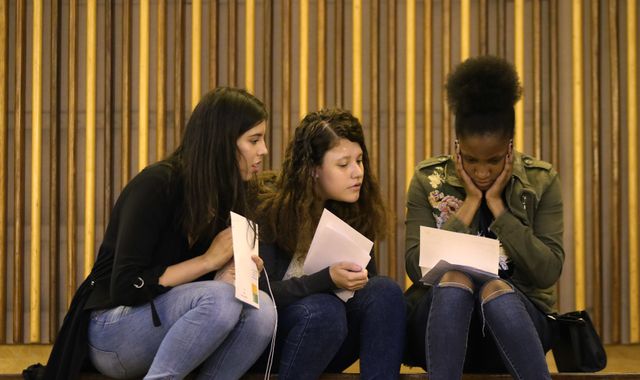GCSE reforms face full test as more exams swap to new grading system
Written by News on 22/08/2019
Former education secretary Michael Gove’s reforms to GCSEs get their first full test this summer, two years after sweeping changes were implemented.


Hundreds of thousands of pupils across the country get their results today, amid warnings from headteachers that reformed courses are having a “demoralising” effect on students, with eight in 10 also worried that they are causing higher levels of stress.
The exams have been toughened up, with less coursework and more exams at the end of the two-year period rather than throughout.
Some of the biggest changes came to the grading system which was swapped from A*-G to a numerical system, on a scale of 9-1, with 9 being the highest.
English and Maths GCSEs, which are taken by all pupils, were moved to the new system in 2017, and another 20 subjects were added to the list the following year.
This summer another 25 subjects were added to the list, leaving just three qualifications which are not graded in numbers, including Persian.
Pupils who would have been awarded a C for an exam were predicted to be given a 4 when the new grades were first trialled, and a 7 was equivalent to a low A.
Under the new system, fewer pupils should receive the top grade of a 9 because it’s intended to allow for more differentiation among the brightest students.
Last year, 732 16-year-olds in England, the only country where the changes have happened, got a clean sweep of at least seven 9s.
The reforms started in 2011, led by Mr Gove when he was education secretary. In 2014, he said the new courses “set higher expectations” and “demand more from all students and specifically provide a further challenge to those aiming to achieve top grades”.
:: Listen to the New Lines podcast on Apple Podcasts, Google Podcasts, Spotify, Spreaker
But teachers are concerned about the impact of the overhaul on vulnerable pupils, including those with special educational needs.
The Association of School and College Leaders (ASCL) said the overhaul “sacrificed the interests” of vulnerable pupils for the “supposed benefits of raising the bar for the most able”.
Of 500 ASCL members questioned, 98% said the new courses were harder, and 80% said students with lower prior attainment were detrimentally affected.
One assistant headteacher said: “These have been designed without a thought for low prior attaining or SEN students. I cannot think of anything more dispiriting than going through school thinking every day ‘I cannot do this’ – but that is the reality for many students.”
A different survey by the National Education Union (NEU) found that 73% of its members thought pupil mental health was worse thanks to the new GCSEs.
In the poll, 64% of 650 teachers said the reformed courses reflected pupils’ abilities less accurately than in their former guise.
However 19% said they reflected abilities better than before.
Speaking about the ASCL survey, a department for education spokesman said: “Exams are an essential part of ensuring that young people have acquired the knowledge and skills they need, but should never be at the expense of a young person’s wellbeing.
“We trust schools to work with parents and support young people so they do their best.”
(c) Sky News 2019: GCSE reforms face full test as more exams swap to new grading system







